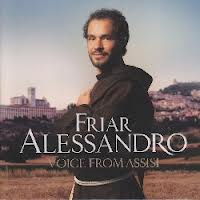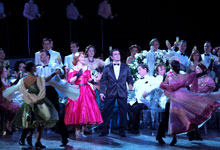Album Review: Winterreise/ Greco/Helyard
Schubert – Wintereisse/ David Greco I Erin Helyard,
ABC 4817470
Written by Randolph Magri-Overend
Franz Schubert was too good a composer. A bit more about this in a moment. But first, the historical background to Wintereisse. In the latter part of 1822 Schubert knew he was dying. After leading a debauched life he developed symptoms of syphilis. Knowing that there was no cure for the disease, he composed Wintereisse fully aware that the illness could lead to insanity. To a friend he whispered: “I will sing you a cycle of horrifying songs.” No wonder then that Schubert wrote the song cycle almost entirely in minor keys.
With lyrics from verses by the Prussian poet, Wilhelm Müller, by 1827, Schubert thought he had finished the cycle. He wrote Fine with a flourish at the end of the twelfth song. But wait, there was more. In March or April that year Schubert discovered 12 more poems which extended the total to 24.
The complete Wintereisse is a monodrama of what transpires when a love-rejected man, with echoes of dementia, self-pity and a foreboding about his own existence, goes on a walk-a-about in the snow. He is not worried about the elements, nor that he’s not wearing the proper clothing. He wanders aimlessly, lost in his own thoughts and worrying more about the crow that persists in following him, a leaf that falls to the ground and dogs barking while people sleep. He comes upon a graveyard which, in his delusional state he perceives as an inn – but all the rooms are taken. He spies a signpost: “I must travel a road,” he mutters to himself, “where no one has ever returned.”
And finally he crosses paths with a hurdy-gurdy man, playing his instrument mechanically with frozen fingers. His begging bowl lies empty at his frozen feet, dogs growl and yet still he plays. Our traveller asks him: “Can I come with you? Will you play your hurdy-gurdy to accompany my songs?” We are left with quixotic assumptions. What happened? Only our imaginations can supply a solution.
Aided and abetted by pianist Erin Helyard, David Greco is by far Australia’s best current lieder baritone. Let us not forget his Bach renditions. And here I should congratulate his well-deserved appointment as vocal coach and lecturer at the Sydney Conservatorium. His artistry is impeccable and his sotto voce singing second to none. However, (and I come back here to my original remark about Schubert being too good a composer) I do wish Greco had strayed slightly from the required script and allowed his intuition to take over. I feel he should have abandoned some of his sotto voce tone for a full-blooded baritone voice. I know I am fighting a losing battle, since so many singers have preceded Greco in singing this song cycle. Regarded as the pinnacle in lieder, from their point of view, it is not only a challenge to have recorded it but also a prestigious achievement, like earning a cloth badge in the Boy Scouts.
Hardly anyone has looked at Wintereisse from a listener’s point of view. Here’s 60+ minutes of music sung in the same tone of voice, with no variety, no vocal change (like the addition of a tenor or a soprano) and, except for two or three exceptions, all sung in the same sombre mood. Now and again Greco comes out and sings in his adult baritone voice, but it is not enough. When I was learning to sing lieder I would listen to the odd track that interested me, but this is different.
Having said all that, I am now fascinated with the mysticism of the last lieder ‘Der Leiermann’. The music is an echo of Schubert’s physical and emotive feelings. It will continue to haunt me for a long, long time. Well, that in itself is an achievement!
SoundsLikeSydney©
Randolph Magri-Overend says:

When I first set foot on the Sydney Opera House stage to act in Boris Godunov in late 1979, I hoped my Nannu Gusi was taking note from up above. He was the driving force behind my love for classical music, especially opera. Since that first step I played out my fantasies many a time in other operas. At the time I was trying to make it as a classical singer…even a young Simone Young was my coach. But I was never successful and later in life I became a ‘disc jockey’ for the likes of Fine Music (amongst others). I also wrote reviews, programmes and wrote articles for their magazine. I hope I can share with you the joy I harbour for music.







